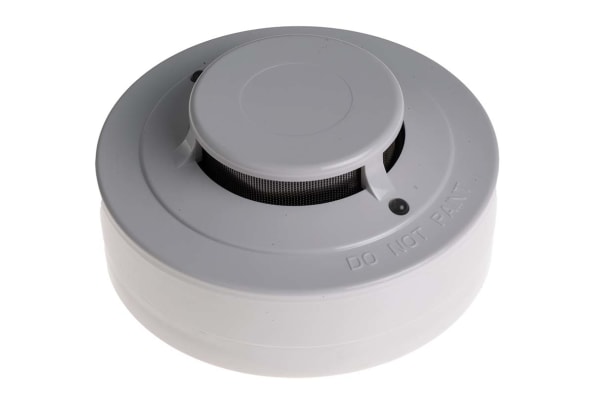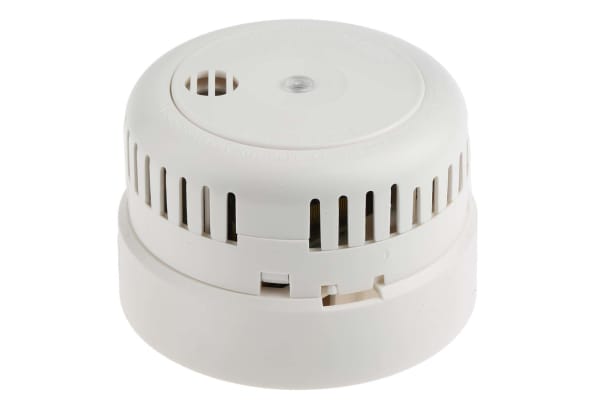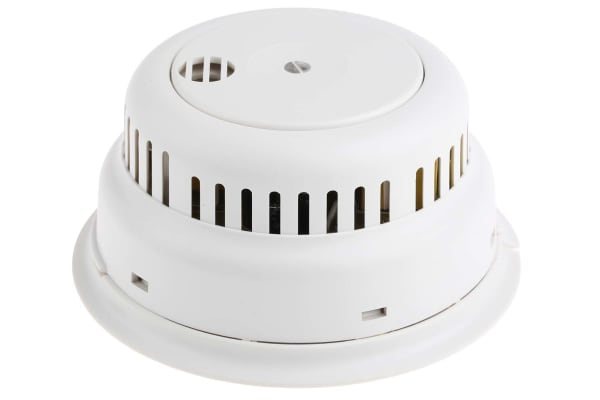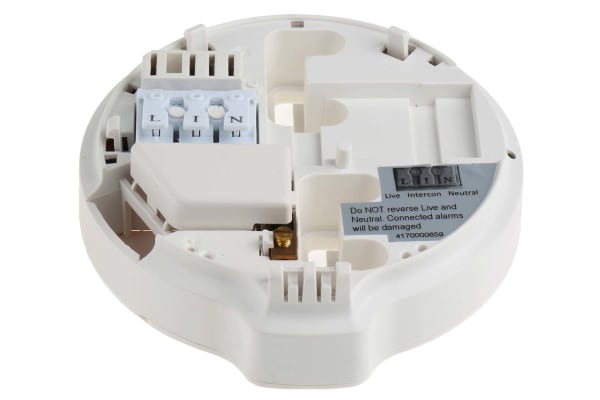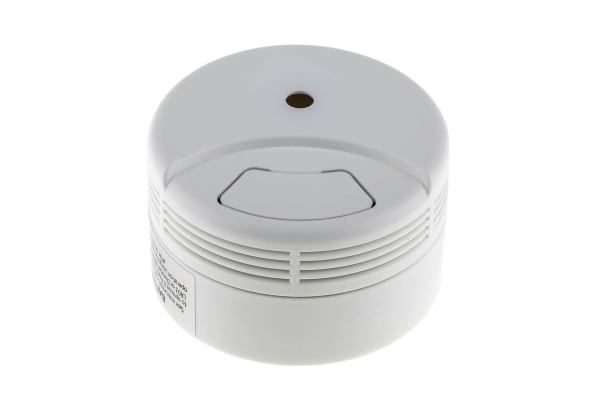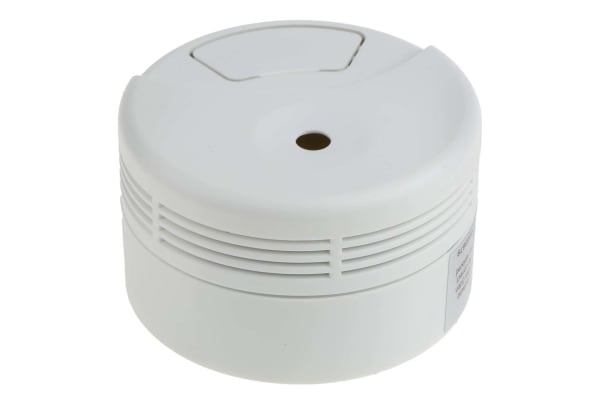Smoke Alarms
Smoke alarms are an integral element in commercial and domestic safety. Able to detect fires and warn inhabitants, a smoke alarm is the most effective way to ensure fire safety and awareness in a way that doesn’t rely on human detection.The RS Components range of smoke alarms and fire detection equipment has dependable models from leading brands.Ionization Smoke DetectionThe most common form of smoke alarm are those that rely on ionization. With a special ionized sensor chamber, these alarms sound when smoke particles interrupt the air flow in that sensing chamber. Therefore, as soon as smoke particles get near the smoke alarm, it will sound. Though this makes them vulnerable to false alarms from every day kitchen activities, they remain one of the most effective tools in fire detection, and are believed to respond more swiftly to fast flaming fires than optical smoker detectors.Optical Smoke DetectionOptical smoke detectors use a pulsing LED in a sensing chamber. When smoke enter this chamber the LED light is reflected and triggers the alarm. Optical smoke detectors are considered to react more swiftly to smouldering fires, and trigger fewer false alarms due to cooking smoke and bathroom steam than ionization versions.Heat DetectionSome fire alarms rely on the detection of heat rather than smoke to identify fire. Heat detectors have a heat sensitive element that responds to either a ‘rate-of-rise’ in temperature, or to a fixed temperature. Rate-of-rise (ROR) detectors measure a sudden increase in temperature, but often also have a fixed temperature that they will respond to. As heat detectors don’t rely on smoke, they are used in areas where air particles might interfere with a smoke detectors correct operation, such as kitchens or laundry rooms.Battery or Hard-Wired Fire Detection SystemBattery operated smoke alarms are very common and cost effective. Because they are independent from any wiring, they can be installed almost anywhere. Their primary disadvantage is that they may run out of battery, but most models will contain a low battery warning or a battery testing button, allowing you to make sure they are always in working order. Many manufacturer’s recommend changing the batteries of a smoke alarm over a fixed schedule, such as every six months or one year, to ensure full confidence in their operation.Hard-wired smoke alarms, are wired into the mains and are more common in commercial properties. They have the advantage of never running out of batteries, and though they rely on a mains power feed, they are equipped with battery backups in the event of a power cut.
-
ABUS PC Optical Smoke Detector, 12V dc
IDR605,005.52 -
FireHawk Safety Products Optical Smoke Detector
IDR1,040,299.02 -
FireHawk Safety Products Optical Smoke Detector
IDR595,145.86 -
FireHawk Safety Products Optical Smoke Detector
IDR368,059.01 -
FireHawk Safety Products Relay Base
IDR684,092.58 -
FireHawk Safety Products Smoke Detector
IDR203,696.38 -
FireHawk Safety Products Smoke Detector
IDR156,181.21



